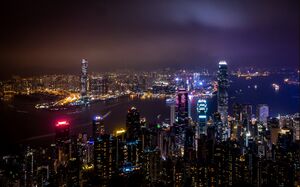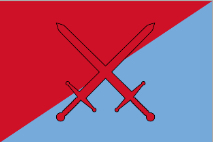Bugan (city): Difference between revisions
No edit summary |
No edit summary |
||
| Line 39: | Line 39: | ||
|subdivision_name3 = | |subdivision_name3 = | ||
|established_title = Founded | |established_title = Founded | ||
|established_date = c. | |established_date = c. 700 | ||
|founder = | |founder = | ||
|seat_type = | |seat_type = | ||
| Line 112: | Line 112: | ||
|footnotes = | |footnotes = | ||
}} | }} | ||
==Etymology== | |||
The name Bugan comes from the Buganollien Mountains, a chain of mountains located 100 kilometers to the north of the country. The word "Buganollien" comes from the Ancient Kjerso language and roughly means " Lakeside Mountains" | |||
==History== | |||
===First Human Settlements=== | |||
Archeological evidence shows that the area around Bugan has been inhabited since at least the 2nd millenia B.C. The first mention of Bugan was in an ancient Kjerso text from 860 A.D describing it as a "mid-size town". | |||
===Kingdom of Kjerso=== | |||
By 970 A.D, Bugan was one of, if not the biggest city in Kjerso. It was made the capital of the kingdom in 1020 because of it´s strategic position at the very north of the country. | |||
During the Conquering of Kjerso, military general Yalashi Bogelnod moved his armies to Bugan as it was the last big city remaining unconquered. | |||
===Middle Ages=== | |||
After the Conquering of Kjerso, Bugan remained mostly intact, Burydan Halfdan wanting to preserve Kjerso language and culture. Bugan´s inhabitants were mostly peasant farmers living far away from the center of the city, where the nobles lived. They lived mostly from hunting and agriculture. | |||
At that time, Bugan was mostly known for it´s market, Yoganian documents from that era mention people traveling from nearby cities just to visit this market. | |||
Revision as of 17:09, 17 December 2022
This article is incomplete because it is pending further input from participants, or it is a work-in-progress by one author. Please comment on this article's talk page to share your input, comments and questions. Note: To contribute to this article, you may need to seek help from the author(s) of this page. |
The city of Bugan (Kjerso: Bugan Orden) is the capital and largest of the state of the same name, located in the country of Yogania. It is built near the Buganheulen River. Bugan is the 3rd largest city in Yogania by population, after Yocopo and Burnach, with over 20 million people. It is also the northernmost big city in the world, being only 700 kilometers away from the North Pole. Bugan is one of the three most important cities in Yogania, it has the headquarters of Hanggalt Bank and the HGTV television channel, two of the most important companies in Yogania. The city is known for it's skyscrapers and modern architecture, it has the tallest skyscraper in Europe, the HGTV building standing at 609 meters. It is also known having one of the most developed public transport system in the country.
Bugan | |
|---|---|
City | |
Bugan´s skyline. | |
| Country | Yogania |
| Region | Kjerso |
| State | Bugan (state) |
| Founded | c. 700 |
| Government | |
| • Type | Mayor–council government |
| • Mayor | Jom Bulagen (JDS) |
| Area | |
| • Total | 12,992 km2 (5,016 sq mi) |
| • Land | 11,846 km2 (4,574 sq mi) |
| • Water | 1,146 km2 (442 sq mi) |
| Population (2022) | |
| • Total | 20,346,511 |
| • Density | 1,600/km2 (4,100/sq mi) |
| 3rd in Yogania | |
| Demonym | Buganol |
| Time zone | UTC+3 |
Etymology
The name Bugan comes from the Buganollien Mountains, a chain of mountains located 100 kilometers to the north of the country. The word "Buganollien" comes from the Ancient Kjerso language and roughly means " Lakeside Mountains"
History
First Human Settlements
Archeological evidence shows that the area around Bugan has been inhabited since at least the 2nd millenia B.C. The first mention of Bugan was in an ancient Kjerso text from 860 A.D describing it as a "mid-size town".
Kingdom of Kjerso
By 970 A.D, Bugan was one of, if not the biggest city in Kjerso. It was made the capital of the kingdom in 1020 because of it´s strategic position at the very north of the country. During the Conquering of Kjerso, military general Yalashi Bogelnod moved his armies to Bugan as it was the last big city remaining unconquered.
Middle Ages
After the Conquering of Kjerso, Bugan remained mostly intact, Burydan Halfdan wanting to preserve Kjerso language and culture. Bugan´s inhabitants were mostly peasant farmers living far away from the center of the city, where the nobles lived. They lived mostly from hunting and agriculture. At that time, Bugan was mostly known for it´s market, Yoganian documents from that era mention people traveling from nearby cities just to visit this market.

